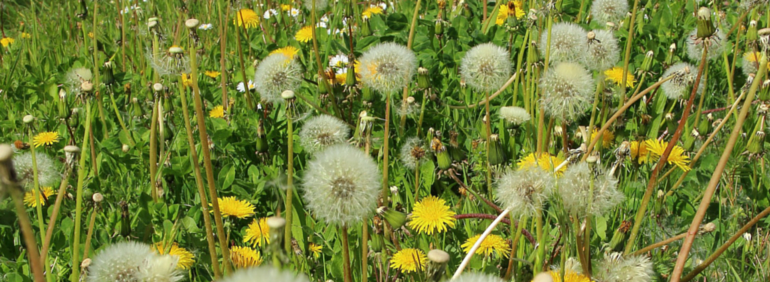It’s that time of year again! The trees are budding; flowers are blooming…. and if you’re part of the millions that suffer from seasonal allergies, it also means the sneezing, coughing, running nose and puffy eyes are back. Contrary to popular belief, seasonal allergies are not normal, but rather a sign that the immune system is imbalanced. In order to identify the underlying cause of your seasonal allergies (and stop them for life!), seemingly unrelated health factors need to be evaluated, including gastrointestinal health, liver function, food sensitivities, nutrient deficiencies, and more.
In the meantime, it can be helpful to understand how seasonal allergies work, and natural alternatives to antihistamines.
Mechanism Behind Seasonal Allergies
In its physiological context, “allergy” refers to the body’s hypersensitivity to certain environmental conditions. It is an exaggerated response of the immune system to substances that cause no harm in most individuals. Seasonal allergies describe a particular class of hypersensitivities based on seasonal conditions, particularly those of the spring and summer months when flowers are blooming and pollen spreads through the air.
The “humoral immune system” refers to the branch of the immune system that produces antibodies – molecular “tags” that essentially have “memory,” giving them the capability to remember certain pathogens and stimulate an immune attack any time the body is exposed to that particular insult. This is the branch that is activated in those with peanut or pollen allergies, for example. Whenever the offending substance is consumed by a susceptible individual, it triggers a type of immune cell called a plasma B-cell to produce a large amount of antibodies (in this case, specifically IgE antibodies). These IgE antibody identify the foreign substance, activates storage tank molecules called basophils and mast cells, and stimulates the release of additional defensive chemicals.
Among these chemicals are most notably histamine and heparin, as well as other pro-inflammatory cytokines (immune signaling chemicals) that promote an extreme immune response characterized by local blood vessel dilation and the recruitment of additional immune cells. This cascade then create the onslaught of symptoms associated with allergies: runny nose, sneezing, coughing, puffy eyes, and more.
Finding Relief
Though we always strive to find and address the underlying cause to all health conditions at Grossman Wellness Center, including seasonal allergies, we also understand that sometimes relief is needed immediately. When used together, two nutraceutical (high quality doctor-prescribed health supplements) products synergistically target the primary pathways associated with the allergy response. HistDAO and AllerDHQ by Xymogen work to simultaneously breakup the circulating immune complexes that trigger the cascade described above, calm the immune reaction, prevent histamine release from the mast cells while concurrently dissolving excess histamine that does happen to be released (i.e. a natural anti-histamine).
When taken as prescribed, these health supplements can provide major relief from seasonal allergies while you work with your healthcare practitioner to determine the underlying cause.
Call our office to purchase these nutrients and set up your appointment today!

